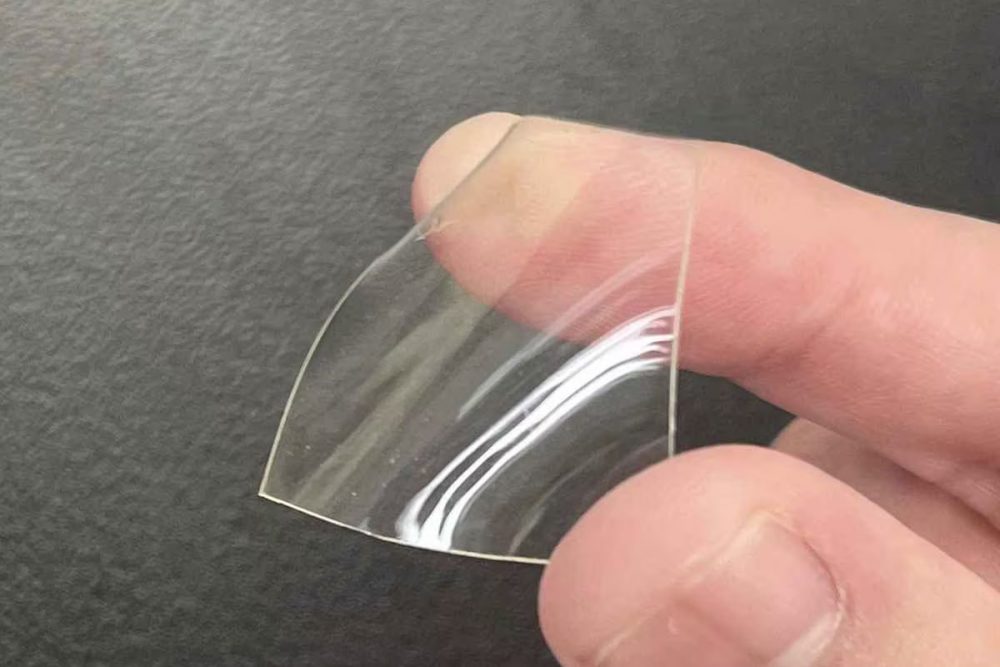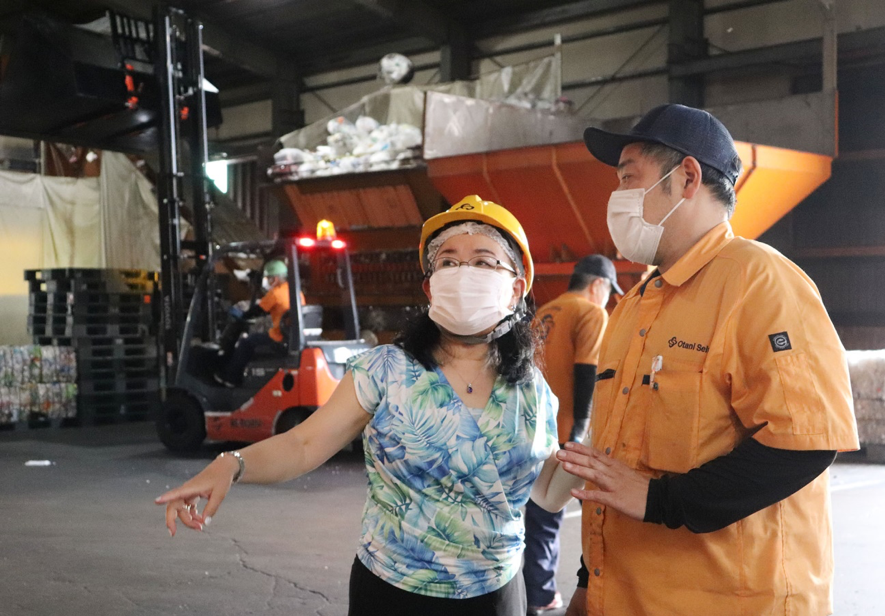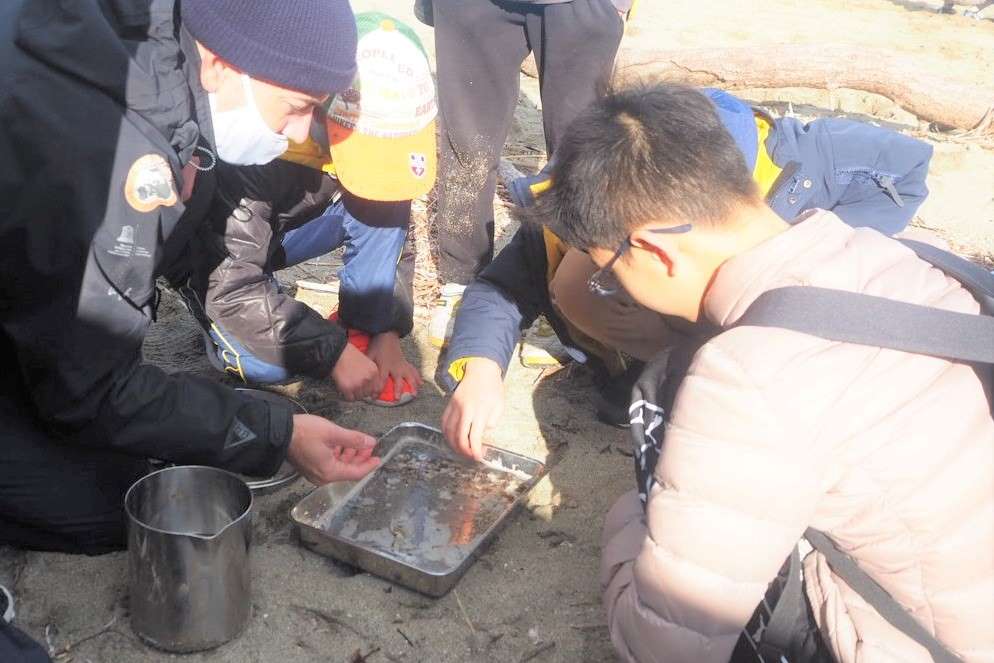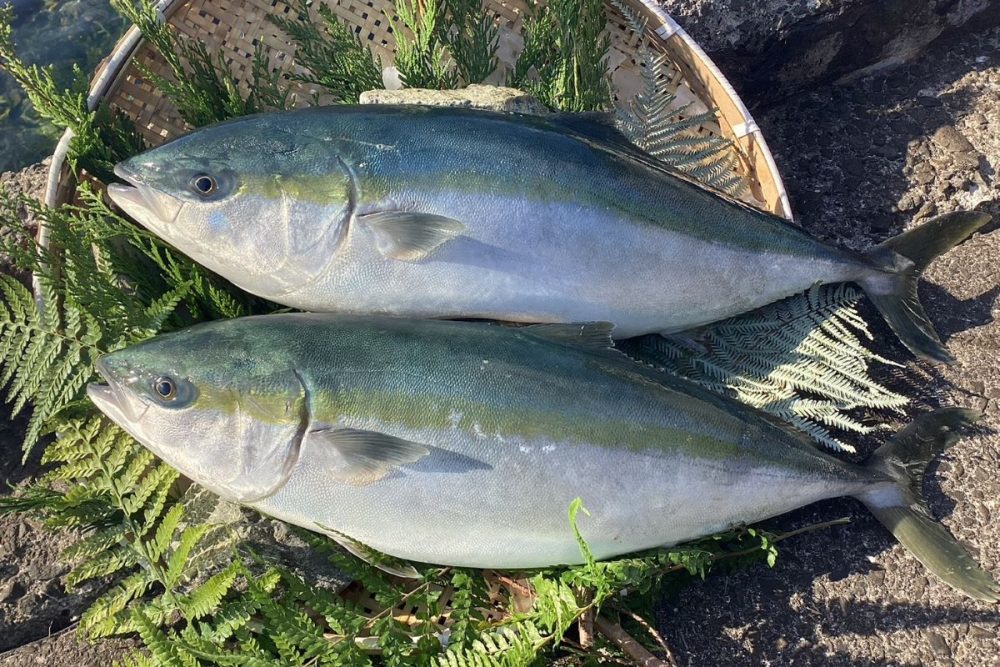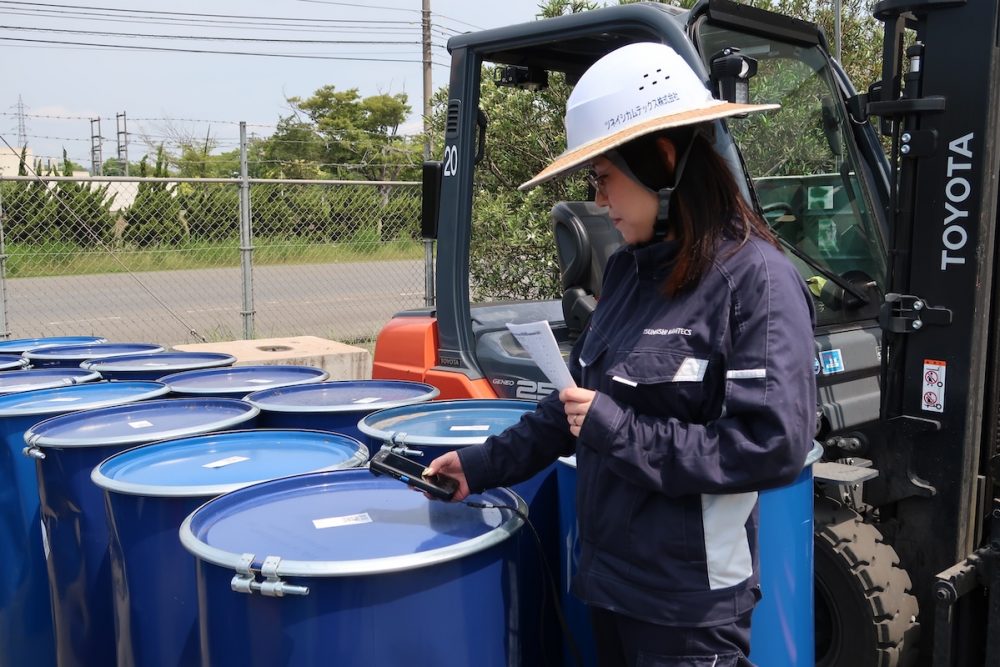Tsuru-no-Mai Bridge: Upcycling Wood Waste from a Tourist Treasure
Tsuruta Town in Aomori Prefecture is upcycling waste wood from the renovation of Tsuru-no-Mai Bridge into unique products with added value for sustainability.
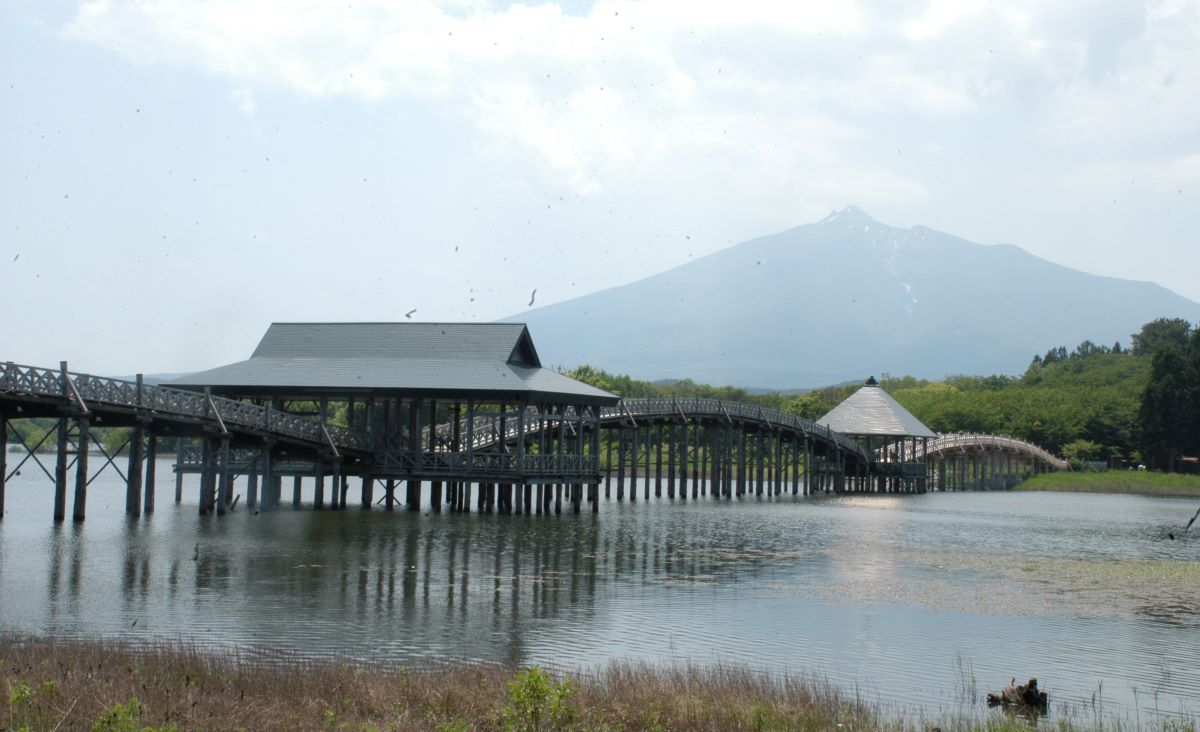
このページを 日本語 で読む
A town called Tsuruta in Aomori Prefecture has launched a very unique upcycling initiative. They are reusing scrap materials from the renovation of Tsuru-no-mai Bridge, a popular tourist spot. Wood waste is being transformed into products like chopsticks and sake cups.
The town aims to add new value to this precious tourism resource and attract more visitors by promoting these products. Sales revenue could also be funneled into future bridge maintenance costs. The second batch of wooden products will be unveiled this summer. Will this endeavor breathe new life into efforts to create a circular economy?
A Town for Cranes
The small town of Tsuruta, whose name means "crane rice fields," has historically been associated with cranes dating back to the Edo period. To this day, local authorities incorporate cranes into town planning.
The landmark Tsuru-no-Mai Bridge was completed in July 1994 at a total cost of 260 million yen, funded by national and prefectural subsidies. It is now managed by the town government. The arched wooden bridge is 300 meters long and 3 meters wide. It was constructed from 700 cypress (asunaro) trees of over 150 years in age.
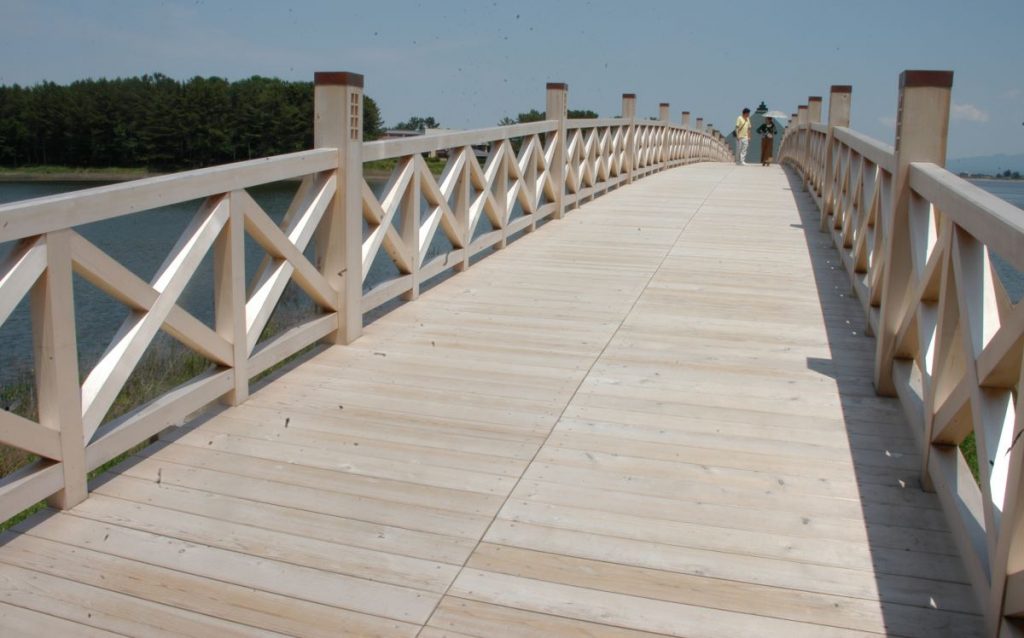
The gentle arches of the bridge, designed to evoke the image of a pair of cranes in flight, have become a symbol of the town.
It spans Mawarizeki Reservoir, which serves as a water source for irrigation. The adjacent Mt. Iwaki (1,625 m) reflected on the lake is a spectacular view. Nearby, the Fujimi Lake Park includes the Japanese Crane Nature Park that is home to endangered red-crowned cranes.
Embarking on Major Renovations
The bridge gained nationwide attention when it was featured in a JR East commercial starring the acclaimed actress Sayuri Yoshinaga in 2016.
But after nearly 30 years, the bridge was showing signs of wear and tear. And so the prefecture began major renovation work in September 2023 to extend the lifespan of this local symbol and tourist attraction. Completion is scheduled for March 2026.
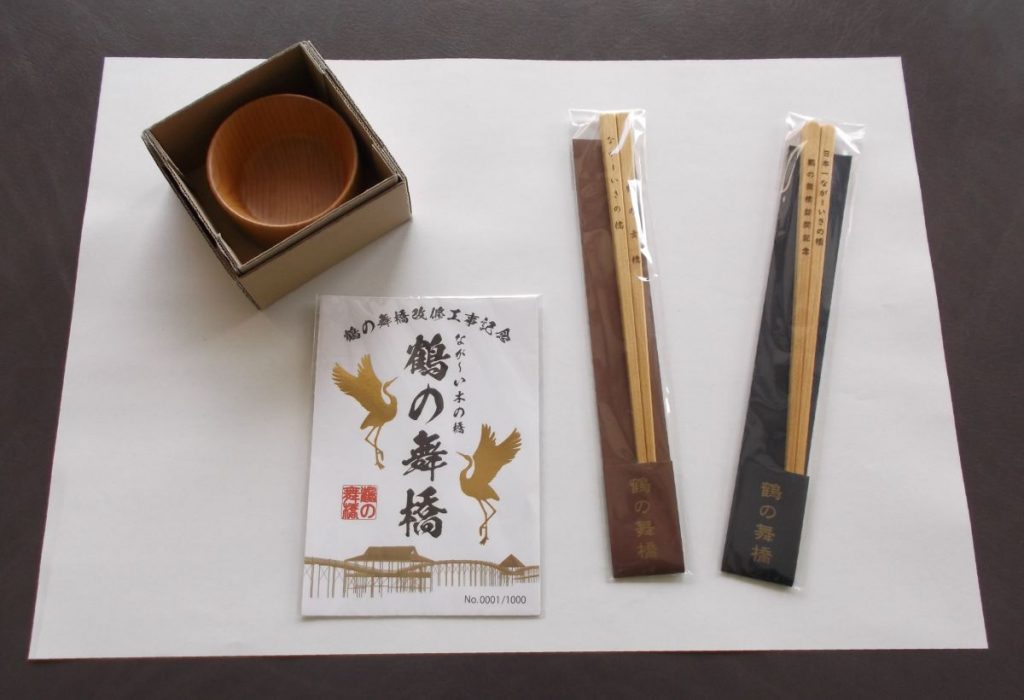
The first stage of the renovation work was completed on March 31. During this period, waste cypress wood deemed reusable was carefully set aside. A woodworking company in nearby Owani Town was commissioned to transform the waste wood into chopsticks and sake cups.
The chopsticks, priced at ¥1,500 (about $10 USD), are 23 cm long and come in two designs. A perfectly-sized round sake cup, priced at ¥2,800 (about $18 USD), measures 4 cm in height and 7 cm in diameter.
They are available at the "Tsuru-no-sato Aruja" roadside station and the Fujimi Lake Park shop in Tsuruta.
Upcycling and the SDGs
The town's unique upcycling project is significant.
"Renovations to date have been small in scale. This current large-scale project aligns with the Sustainable Development Goals (SDGs). Our approach attempts to find ways to reuse limited resources. We are adding value to locally sourced materials and contributing to their effective use," emphasized a spokesperson for the town government.
A considerable amount of waste material is again expected in the second phase of the renovation, scheduled to begin in September 2024 and finish in March 2025. The town aims to expand products to include larger sake cups, plates, and spoons. They hope local businesses in Tsuruta will also take on part of the production.
According to local authorities, the town's tourism industry has gradually recovered since the COVID-19 pandemic. About 180,000 tourists visited Fujimi Lake Park in 2023, an increase of about 6,000 from the previous year. The number of international visitors is also on the rise. The town anticipates synergistic effects on its finances as more tourists visit the area and the soon-to-be newly renovated picturesque wooden bridge.
このページを 日本語 で読む






